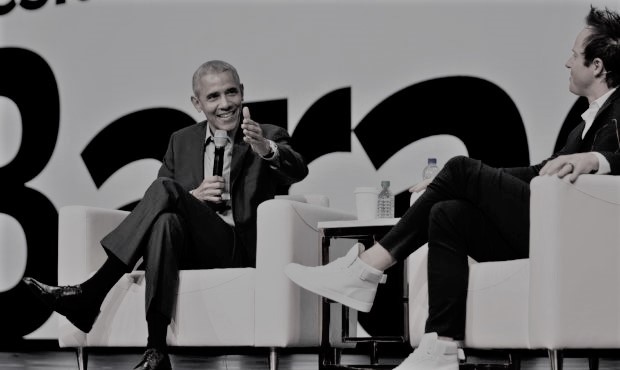I came back from the X4 Experience Management Summit 2019 with almost 100 pages of notes in my notebook (Yes, I am a fake millennial, but I am okay with it. I own it—I need to write on paper in order to process what I hear!). Overall, I would say that I learned three humbling but very tangible lessons1 that are applicable to everything we do.
Intention has to come first
We should never start anything until the intention2 is defined and clear for all stakeholders. As simple as it sounds, it’s key to ensuring that the actions you take generate the equal and opposite reactions that you seek.
The intention is the cause and should be the first thing you check off on your list before you start anything, whether personal or professional. I never thought I would paraphrase Oprah in a business context, but here it is: without an intention you lose your purpose, and the results won’t be the ones you were seeking.
The power of intention was directly covered by Oprah but indirectly covered by other speakers in various forms: Ask questions intelligently (based on your intention) not impulsively, “surround yourself with people who do things for the right reasons”3 (aligned with the intention of the project, not their personal agenda), increase the frequency of feedback only if you act upon the information you are collecting (collect with the intention to do something), etc.
Judgment and intuition are still relevant
Experience management is both an art and a science. Technology and data are important tools to design breakthrough experiences, but they aren’t the only tools. Smart decision-making and problem-solving are still very much dependent on judgment and intuition.
As Adam Silver, Commissioner of the NBA said, “Everything in life does not come down to analytics […] the art that goes with Qualtrics science is to make sure that you ask the right questions […] and make the right decisions’’ with the information.
You need to gather all the facts, but in the end, it comes down to human skills. We are still relevant.
Authenticity goes a long way
The best speaker was by far Dean Carter, CHRO at Patagonia. He was the most captivating speaker to listen to not only because he was sharing the most disruptive messages (about Patagonia, its culture, and EX), but because he delivered his content in a very honest and authentic way.
Most of the speeches given at the event were scripted. By doing so, yes, speakers made sure to choose the perfect words and cover all their topics in an organized way, but they did not necessarily create a connection with their audience. I mean, we might prefer to read their text at home than have them read it to us on a stage!
Stories are better told when shared from the heart and when you leave space for spontaneity. This is exactly what Dean Carter did.
Paul J. Zak, the author of Trust Factor4, would probably agree that Dean Carter, while on stage, embodied one of the key factors that generate trust: being natural. This happens when leaders are honest and vulnerable. During his speech, he did not hesitate to share the lessons he has learned over time. He admitted that he would do a lot of the things he did in the past differently when it comes to managing people and the HR department in other organizations that were “extractive versus regenerative” for his people.
I will talk more specifically about Patagonia in my next article, but I can tell you that I wasn’t the only one in the room touched by the style of this leader. The standing ovation he received and the tears in the eyes of those around me are proof that authenticity still goes a long way.
In conclusion…
Human soft skills (versus technology alone) are still very important to succeed and generate a positive impact (on the people around you, in your projects, on your bottom line, or whatever it is that drives you right now). My week with Qualtrics at the X4 Summit in Salt Lake City was definitely a good investment of time and money for Tangible. It was the perfect example of a combination of professional and personal moments that matter5.
In case you are wondering, I didn’t learn much from Imagine Dragons but I had fun 😉
Notes:
- I also attended six breakout sessions on employee experience. My learnings on this topic will be part of my next article, “Key Takeaways from the X4 Experience Management Summit 2019 (Part II): Leading Practices in Employee Experience.”
- (As quoted by Oprah Winfrey during the conference) Gary Sukav, The Seat of the Soul, 2014
- Barack Obama, X4 Experience Management Summit, 2019
- Paul J. Zak, Trust Factor: The Science of Creating High-Performing Companies, 2017
- Accenture, Employee Experience Reimagined, 2017



